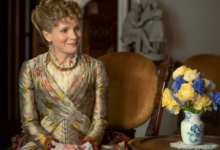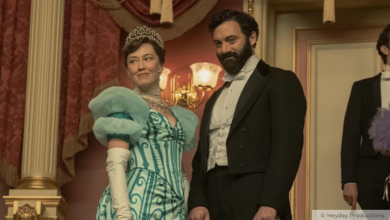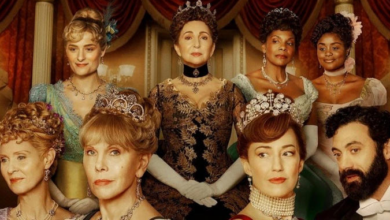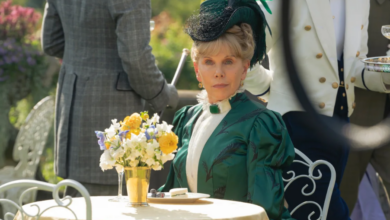Julian Fellowes (‘The Gilded Age’ creator) on how Season 2’s opera wars make ‘a statement of the triumph of modernity over the past’
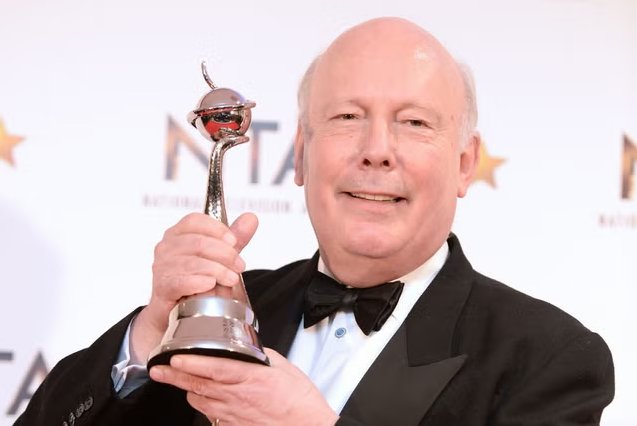
“I was looking through 1883 events and scandals and gossip and political stuff and so on, and I came upon this extraordinary fact of the opera war,” remembers Julian Fellowes about where he drew inspiration from for the Season 2 arc of “The Gilded Age.” He recalls being shocked that the established Academy of Music and the new Metropolitan Opera “opened on the same night,” which is a battle brought to life on the HBO series through its protagonist Bertha Russell (Carrie Coon). The creator, writer and executive producer also found the opera an appealing subject because it is “a wonderfully visual expression of their power and their money and their determination,” referring to the Russells and their ilk. Watch our exclusive video interview above.
“The Gilded Age” is always bursting at the seams with incredible characters, and the second season continues to explore how the Russells gain power and prestige in a New York City dominated by old money families like the Astors. Fellowes says the folks with new money “discovered the kind of sense of American identity” and through them we “see the beginning of modern America.” The real Lina Astor, for example, “wouldn’t have anything to do with” Jay Gould, who is the inspiration for George Russell (Morgan Spector). In the second season, George battles union workers at his Pittsburgh, Pennsylvania, factories. The Emmy-winning writer had to balance that ruthlessness with his tenderness, saying, “I think people are full of contradictions” and “contradictory emotions.”
The second batch of episodes also follows newspaper writer Peggy Scott (Denée Benton) on a trip to the south to cover Booker T. Washington, a trip that ends with her and and her editor T. Thomas Fortune (Sullivan Jones) hiding from a lynch mob. Fellowes says the show incorporated this harrowing trip to the south for Peggy because “it was important that Peggy should understand what everyone was talking about, that her father is an ex-slave and all her life she’s heard this a thousand times, but she hasn’t really grasped it… She had to see it for herself, she had to experience it.”
Tragedy haunts multiple characters this season, as Cynthia Nixon’s character Ada falls in love and marries for the first time in her life, only to have her new husband Luke (Robert Sean Leonard) die shortly after their nuptials. Fellowes reveals that this story was in part inspired by real-life events concerning friends of his parents. The creator felt that now was the right time to include a love match for Ada because he wanted to demonstrate that “Ada is a three-dimensional character who has a fully-developed emotional self… Ada has all the layers that are necessary to have a fulfilled heart.” Though Luke’s death is devastating for her, the writer believes she ultimately “benefits” from the experience, saying, “Just because something is tragic doesn’t mean it has no value.”
Fellowes submitted the season finale, “In Terms of Winning and Losing,” for Emmy consideration. The episode picks up in the aftermath not only of Luke’s death, but also after Ada’s sister Agnes (Christine Baranski) learns that her son has lost her entire family fortune. While Agnes has always ruled the roost in the house she shares with her sister, Ada comes into her own large sum of money from Luke, so their dynamic will look extremely different in Season 3. The Oscar-winning writer says of this shocking development, “Life changes things, and when you get old you realize that people’s expectations of life are often wholly different from what actually comes to pass.”
The finale is also noteworthy for how it depicts those dueling opening nights at the Academy of Music and the Met Opera that so captivated Fellowes in the historical record of the era. The final act of the episode shows just how big a victory Bertha and the Met score against the old guard of society. “It was for me a statement of the triumph of modernity over the past,” reflects the executive producer. He adds that as a writer, he is rooting for Bertha to win because “she knows what she wants and she’s going to get it.” He is especially interested in her social ascent because this late-nineteenth-century society was not particularly flexible for women, so he desires to explore what women with “brains and ambition and determination” did with themselves.
